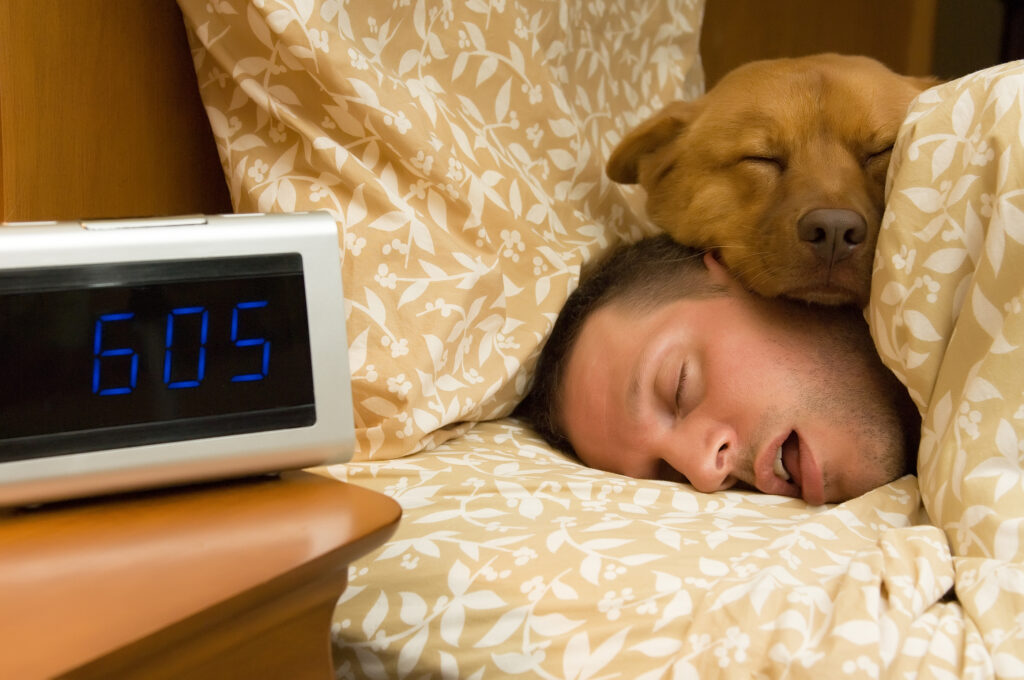February 7, 2025

In our fast-paced modern world, sleep often takes a backseat to the demands of daily life. However, prioritizing quality sleep is essential for maintaining optimal health and well-being. Understanding the importance of sleep and implementing effective sleep hygiene practices can lead to significant improvements in both physical and mental health.
Hormonal imbalances, including thyroid dysfunction, can be a major cause of poor sleep quality. When thyroid hormones are too high or too low, they can disrupt the body’s ability to regulate temperature, energy levels, and metabolism, leading to insomnia or excessive sleepiness. Sleep plays a vital role in regulating cortisol, the stress hormone, as well as melatonin, which controls sleep-wake cycles. Poor sleep quality can contribute to fluctuations in insulin and growth hormones, further influencing weight gain and metabolic health.
Sleep is a fundamental biological process that allows the body and mind to rest, repair, and rejuvenate. Adequate sleep supports various bodily functions, including immune response, metabolism, memory consolidation, and emotional regulation. Chronic sleep deprivation can lead to a host of health issues, such as obesity, diabetes, cardiovascular disease, and even early mortality¹.
How long can a human stay awake? The world record for the longest time without sleep was set by a man named Robert McDonald, who stayed awake for 18 days, 21 hours, and 40 minutes. He had extreme effects during his record attempt including vomiting, hallucinations, altered perception, and diminished memory. Some who have attempted breaking records for prolonged wakefulness have suffered lasting effects, including persistent hallucinations and chronic insomnia. The consequences of extreme sleep deprivation are so severe that The Guinness Book of World Records no longer acknowledges this category, even though it still recognizes feats like “Most Spears Caught from a Spear Gun Underwater in One Minute.”
The effects of insufficient sleep are far-reaching. Cognitively, sleep deprivation impairs attention, alertness, concentration, reasoning, and problem-solving skills, making it challenging to learn efficiently⁷. Emotionally, it can lead to mood swings, increased irritability, and heightened stress sensitivity⁸. Physically, a lack of sleep is associated with serious health problems, including:
Sleep hygiene refers to a set of practices and habits that promote consistent, uninterrupted sleep. By incorporating good sleep hygiene into your daily routine, you can enhance the quality and duration of your sleep, thereby improving overall health.
Implementing good sleep hygiene can lead to noticeable improvements in daily functioning. Individuals often experience enhanced mood, increased energy levels, better cognitive performance, and a strengthened immune system. Over time, these benefits contribute to a higher quality of life and reduced risk of chronic health conditions.
Prioritizing sleep is not a luxury but a necessity for good health. By understanding the critical role sleep plays and adopting effective sleep hygiene practices, you can pave the way for a healthier, more fulfilling life. Remember, it’s not just about the quantity of sleep but the quality that truly matters.
If you’re ready to address your sleep and overall wellness, the experts at the Hotze Health & Wellness Center are here for you. Our team will guide you through a personalized plan to help you feel your best. Don’t wait! Contact us today at 281-698-8698 or CLICK to schedule a free consultation with one of our Wellness Consultants.
"*" indicates required fields
Since 1989, Hotze Health & Wellness Center has helped over 33,000 patients get their lives back using bioidentical hormones that restore hormones to optimal levels, strengthen immune systems, and increase energy levels. Our treatment regimen addresses the root cause of hypothyroidism, adrenal fatigue, menopause, perimenopause, low testosterone, allergies, and candida.
Led by best-selling author, radio host and leading natural health expert, Steven F. Hotze, M.D., our medical team has over 100 years’ combined medical experience backed by a staff of nearly 100 caring professionals who provide an environment of hope and extraordinary hospitality for each of our patients, who we call our guests. It is our deepest desire to help you obtain and maintain health and wellness naturally so that you may enjoy a better quality of life, pure and simple.
Do you want to live a healthy, happy, purpose-driven life? Do you want to restore your health so that your loss of energy, weight gain, joint pain, depression and lack of drive or motivation won’t hold you back from achieving your personal and professional goals?
Dr. Steven Hotze wants that for you, too. In fact, in his powerful and passionate video entitled, “What I Believe”, Dr. Hotze shares how his Christian worldview and pivotal experiences have ignited a deep desire to offer the message of hope and optimal health to all who need to hear it.









At Hotze Health & Wellness Center, our doctors are changing the way women and men are treated through the use of bioidentical hormones. Our natural treatments have helped over 33,000 individuals with hypothyroidism, adrenal fatigue, menopause, perimenopause, low testosterone, allergies, candida, detoxification and nutritional deficiencies.
Meet our doctors"At 36, I felt like I was 90 – exhausted, depressed, and cold all the time, and now I have a life of energy, focus, restored libido, and a renewed desire to be present with my family!”
Leave a Reply